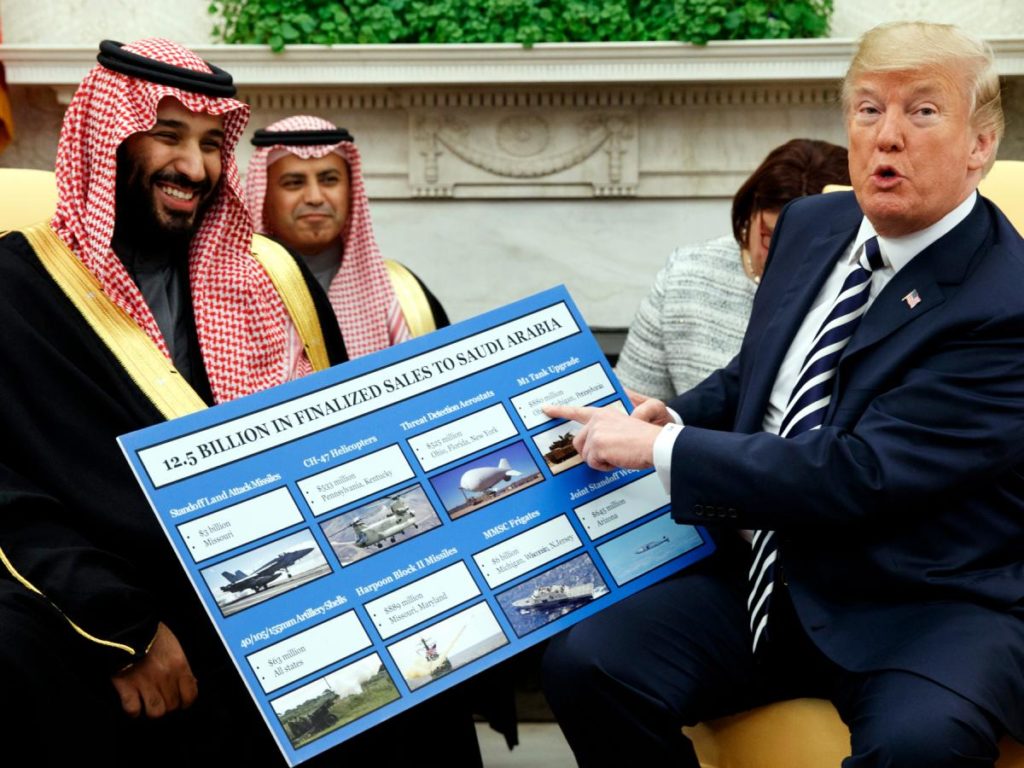Saudi Arabia faces pushback over human rights
Neom, the Saudi monarchy’s megacity, is part of the kingdom’s Vision 2030 project, the main priority of which is to move Saudi Arabia away from its dependence on fossil fuels and towards renewable energy and other foundations for its economy. However, hand in hand with that is its claim to be “modernising” as a state – a shift away from things like arbitrary detentions and torture.
This attempt by Saudi Arabia to rebrand itself into an image of a modern state was primarily to attract new investors and international partnerships, who might otherwise avoid involvement in projects like Neom.
However, attempts by Saudi Arabia and its de facto ruler Mohammed bin Salman to do so have been dealt another blow, after 29 members of the United Nations Human Rights Council (OHCHR) condemned the country for its role in the murder of prominent journalist and Saudi dissident Jamal Khashoggi. Khashoggi was killed and dismembered by Saudi forces while in the Saudi embassy in Istanbul, Turkey, in 2018.
The OHCHR condemnation comes after a 7 September trial in Saudi Arabia of those accused of the killing, which resulted in lenient sentences in a trial kept away from the public.
As journalist Alexander Langlois writes in The National Interest: “The timing of this statement from the various OHCHR members is critical. Saudi Arabia is working to move beyond this glaringly ugly moment that has harmed its international standing, as reflected by the speedy and lacking trial. Although it has yet to be fully seen, the trial’s results are already harming Saudi Arabia’s quick attempts to move on from the murder.”
While Khashoggi’s killing and Neom may not be directly connected, the ruling will worry Saudi Arabia, which has already seen potential partners drop out of Neom as a result of the bad press around the murder.
The OHCHR condemnation was not the only recent blow felt by Saudi Arabia over its human rights abuses. On 24 September, marking the OHCHR session, a number of human rights groups put pressure on the regime over its policy of arrests and detentions.
Americans for Democracy and Human Rights in Bahrain, MENA Rights Group and the Right Livelihood Foundation condemned “the arbitrary detention of Right Livelihood Laureates Mohammed al-Qahtani and Waleed Abulkhair and urged Saudi authorities to account for their neglect of Abdullah al-Hamid’s health, which has resulted in his death”.
The condemnation came as Saudi Arabia was set to host the G20 meeting.
In a statement, the coalition said: “The Right Livelihood Award Foundation, ADHRB, ALQST and MENA Rights Group express deep concern at the consistent pattern of arbitrary arrests and detention in Saudi Arabia, where despite the government’s promises for reform, human rights activists continue to be persecuted in retaliation for their peaceful work.
“Saudi human rights defenders and Right Livelihood Laureates Mohammed al-Qahtani and Waleed Abulkhair are serving respectively 10 and 15 years in prison on activism-related charges. Despite the Working Group on Arbitrary Detention having rendered the opinion that their deprivation of liberty is arbitrary and calling for their immediate release, they remain in prison simply for exercising their right to freedom of opinion and expression.

“Last April, as raised by six UN experts in an official communication to the Saudi government, Right Livelihood Laureate Abdullah al-Hamid died in prison while serving an 11-year sentence on politically motivated charges, following the repeated denial of crucial medical treatment by prison authorities.”
For projects like Neom to attract money from outside the Kingdom, it needs to be seen as a modern, law-abiding state. Every time human rights campaigners raise their voice, it makes Neom less likely.
Read more: More Huwaitat arrested by Saudi regime






